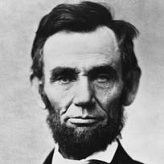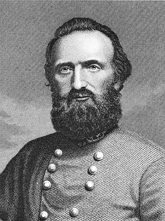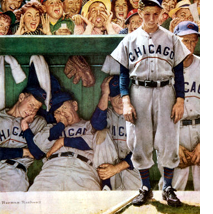BLOG, or DIE. Author Bio
Friday, 27 January 2012
Have a drink on me
 Referred to in historic literature as “the Green Fairy” Absinthe is described as a distilled, highly alcoholic (45–74% ABV / 90-148 proof) beverage. Its legacy has been one of controversy and its reputation as a mysterious, addictive, and mind-altering potion has caused it to be periodically banned in many countries. Absinthe has also served as the subject of numerous works of fine art, films, video, music and literature since the mid-19th century and has spawned an ever-growing subculture of 21st century Absinthe enthusiasts.
Referred to in historic literature as “the Green Fairy” Absinthe is described as a distilled, highly alcoholic (45–74% ABV / 90-148 proof) beverage. Its legacy has been one of controversy and its reputation as a mysterious, addictive, and mind-altering potion has caused it to be periodically banned in many countries. Absinthe has also served as the subject of numerous works of fine art, films, video, music and literature since the mid-19th century and has spawned an ever-growing subculture of 21st century Absinthe enthusiasts.
Numerous artists and writers living in France in the late 19th and early 20th century were noted Absinthe drinkers who featured the alcohol in their work. These included Emile Zola, Vincent van Gogh, Édouard Manet, Amedeo Modigliani, Arthur Rimbaud, Guy de Maupassant, Henri de Toulouse-Lautrec, and Paul Verlaine. Later artists and writers drew from this cultural well, including Pablo Picasso, August Strindberg, Oscar Wilde, and Ernest Hemingway.
Aleister Crowley was also known to be a habitual Absinthe drinker. Emile Cohl, an early pioneer in the art of animation, presented the effects of the drink in 1920 with the short film, Hasher’s Delirium and mystery novelist Sir Arthur Conan Doyle wrote that his renowned detective Sherlock Holmes indulged in the pleasures of Absinthe from time-to-time. Since its resurgence in recent years, modern artists such as musician Marilyn Manson and actor Johnny Depp are unabashed Absinthe drinkers with Manson actually producing his own line of the alcohol.
Despite the fact that there is no scientific proof, Absinthe continues to be frequently and improperly described in modern times as being hallucinogenic. This is entirely false (I think) and at least partly rooted in the fact that following some ten years of experiments with wormwood oil in the 19th century, the French psychiatrist Valentin Magnan studied 250 cases of alcoholism, and claimed that those who drank Absinthe were worse off than those drinking ordinary alcohol, having experienced rapid-onset hallucinations. Such accounts by opponents of Absinthe were cheerfully embraced by famous Absinthe drinkers, many of whom were bohemian artists or writers. Their frequent physical and emotional breakdowns were then blamed on Absinthe, although alcoholism, drug abuse and in some cases, mental-illness was more likely to blame.
As a cocktail connoisseur myself, I have been recently gifted with some Absinthe and will be consulting a close friend with a doctorate in history (and more impressive, the science of bartending) as to the proper preparation and consumption of the liquid. If it was good enough for those folks listed above, it’s certainly good enough for me. And I do hallucinate, I promise to write, or paint, or compose something brilliant. Cheers!
Image: Drinking Bacchus by Guido Reni (1575-1642)

Thursday, 26 January 2012
Two NEW books...
Eric and I have been busy going over the proofs for our upcoming book You Stink! Now that I am seeing the final layout (with the photos and tables inserted), I can say beyond a shadow of a doubt that this book has far exceeded our expectations. I can also say (now that I’ve read it cover to cover), that it is the best thing in print that I’ve ever been a part of. Plan on lots of speaking engagements and publicity to follow the release of this one folks. It’s something special.
In other news, I was just informed by the good folks at The History Press that my book on the Civil War in Spotsylvania County is being re-released as an eBook for Kindle and all those other electronic thingamajigs. Details to come.
Wednesday, 25 January 2012
Being honest about Abe
 There is quite a lot of chatter going on around the CW blogosphere in regards to Abraham Lincoln getting an official holiday here in Virginia. Kevin Levin has a great discussion going on over at Civil War Memory that includes an individual who is actually involved in the crafting of the legislation. I will refer you to his post, but wanted to share my quick-take on the matter.
There is quite a lot of chatter going on around the CW blogosphere in regards to Abraham Lincoln getting an official holiday here in Virginia. Kevin Levin has a great discussion going on over at Civil War Memory that includes an individual who is actually involved in the crafting of the legislation. I will refer you to his post, but wanted to share my quick-take on the matter. The counter-argument that many folks are using is why should Lincoln deserve a holiday in Virginia? The implication is that he was ‘against’ the Old Dominion. This is NOT true. He was against the portion of Virginia that seceeded from the nation, the Confederate States of America to be exact. That is not the entire population of the state. What about all the enslaved African Americans that were freed by his actions? What about the loyalists who wanted to preserve the Union? Lincoln was actually ‘for’ them.
If we can celebrate Lee and Jackson for defending the Confederacy on behalf of whites, why can’t we also celebrate Lincoln who defeated the Confederacy on behalf of blacks? And if the proud descendants of Virginia’s Confederate Veterans can celebrate their heroes – why can’t the proud descendants of Virginia slaves likewise celebrate theirs? The door swings BOTH ways in my opinion. Whether you’re a Lincoln fan or not, to imply that he did not have a positive impact on Virginia that is worthy of remembrance is wrong.
Posted by ny5/pinstripepress
at 12:22 PM EST
Updated: Thursday, 26 January 2012 10:17 AM EST
Permalink |
Share This Post

Tuesday, 17 January 2012
Taking Stonewall down off the pedestal
 It’s certainly no secret that my affection for the life and legacy of General Thomas J. Jackson has been a major influence on my life both privately and professionally:
It’s certainly no secret that my affection for the life and legacy of General Thomas J. Jackson has been a major influence on my life both privately and professionally:
My first book (published back in 2005) was a religious biography on Jackson titled Onward Christian Soldier. Since then I've penned at least a dozen or so articles and have presented three lectures and a banquet address on him; I once taught an 8-week bible study class on Jackson’s piousness at my church; I started a web portal for Jackson-related information titled The Jackson Society; I’ve worked on multiple Jackson-specific studies for Mort Kunstler paintings; Jackson is featured (or at least mentioned) in 5 of my Civil War books; I have received awards from the UDC and SCV for my published works on Jackson; I am often requested for private tours to the Stonewall Jackson Shrine; I own and probably have read more books about Jackson than any other subject; my personal license plate says STOWNWL; and my youngest son is named after the good general.
Cleary I am fascinated with the guy and have spent a considerable amount of time studying him. That said, I now find myself at a point where I must suspend my own idol-worship practices and accept the painful reality that Stonewall Jackson is not hero material. Why? Because I can no longer gloss over the dark realities of this man’s life that I was once captivated by. I can no longer compartmentalize the dreadful cause in which he stood for. In other words, I can’t continue to disregard the sins on which Thomas Jackson’s memory has been founded and fortified. The legacy of Stonewall Jackson may be thick with inspiring religious fervor and military brilliance, but at the heart of it all is a man who ferociously fought for the perpetuation of slavery. How can anyone reconcile that?
Simply put, Thomas Jackson played a central role in a movement that was founded on what we would consider today to be political treason and prejudice. Jackson himself was a complex participant, a walking contradiction of sorts in regards to politics and race. A Christian man, he founded a Sunday school for slave and free blacks in Lexington, yet at the same time, he conducted incredibly successful military campaigns that served a cause vehemently against granting their freedom. One act does not excuse the other.
Jackson’s untimely death is also said to have created an irreplaceable void in the South’s high-command. Therefore one can only conclude that if he had lived beyond the Spring of 1863, the potential for a Confederate victory would have been bolstered – a victory that would have ultimately maintained the institution of human bondage as the primary cog in the economic-engine of the agricultural south.
The reality is that Thomas Jackson “stood as a stonewall” against his own government and repeatedly defeated a Union Army who were pursuing the liberty and freedom of enslaved African-Americans. Yes I get the State’s Rights and defending Virginia soil counter-arguments and absolutely agree that it was an important aspect of the southern cause, but the question I now ask is what “rights” were they defending? The answer is the right to independently govern a society that maintained the institution of slavery. Once again, you can’t get around that no matter how hard you try.
It’s very easy to get caught up in all of the reverence and awe that has been showered upon the Confederacy’s heroes over the last 150 years. With countless monuments and markers testifying to their courage and tenacity, as well as book after book elevating them to a deity-like stature, Stonewall Jackson is a perfect example of a manufactured American titan. His persona has been carefully crafted and handed down for generations. We are taught that he was an Old Testament Warrior who died defending the sanctity of the Old Dominion. He is still worshipped and adored by folks on both sides of the Mason Dixon Line and his likeness is just as much a part of our pop-culture as any other historical figurehead. I am experiencing what I can only refer to as a conflict of conscience and I am looking at Thomas Jackson and his peers in a much different light nowadays. Much like our Founding Fathers, I believe that we must make a concerted effort to reconcile ourselves to the fact that these Confederate icons were not gods, nor are they truly worthy of the elevated statuses that we project on them. They were men. We must acknowledge their humanity and this includes their faults. Perhaps hardest of all, we must accept the fact that they fought for the wrong side.
Stonewall Jackson was a brilliant military commander, a faithful deacon, a loving husband and a brief doting father. These are traits to admire. He was also a socially awkward individual with little people skills, a terrible teacher and communicator who was disliked by most of his subordinate generals and in some regards a fanatically religious egotist who truly believed himself to be conducting the will of God. He was also by textbook definition a military traitor and a racist who voluntarily chose to fight for a deplorable cause. These are not traits to admire.
Professionally speaking, I will continue to be fascinated by this man and I am sure that he will return periodically as a subject in my work. He certainly remains a mainstay in my all-access battlefield tours. Personally speaking however, I no longer find myself emotionally-attached to or quite so enamored by him. That bias is gone. Jackson is no longer a “hero” to me. None of them are. I still respect the Confederacy's conviction, but I can no longer celebrate its cause.
Some of the most respected historians I know preach the notion that one must remain completely objective and impersonal if they really want to accurately convey their subject matter. A NPS chief historian told me once that the minute you become smitten with your subject, your interpretation is skewed. Another friend who is a professor at a major university stated that the second you start writing to bolster your own affections for an individual you are no longer a historian, you are a disciple. I've certainly been guilty of that when it comes to Stonewall Jackson. The hardest part of studying history is accepting the fact that the people you once admired were not really that admirable afterall. I believe it’s time that we take Stonewall down off the pedestal and recognize him for all that he truly was, good, bad, or indifferent – not at all the infallible and mythical figure that some of us have helped to perpetuate for over a century.
I think the best explanation for what I am feeling was posted in an article titled “Confederate Apologists” over at Vast Public Indifference:
When our focus is on honoring the men who fought and died, no doubt bravely, without ever really grappling with what they were fighting for, we don’t learn anything. When we implicitly deny the horror of slavery and the continual betrayal of African-Americans during and after the war, we are setting ourselves up to accept racist fantasies in the present. When we fawn over Southern leaders like Lee and Jackson as models of American manhood, what we are really doing is yearning for a white, Christian, patriarchal past in which women and slaves knew their places and real men were subordinate only to God.

Monday, 16 January 2012
NEW book now available!
 It has been over three years since I’ve been able to announce the pre-order availability of one of my books. I am especially fond of this project as I got to co-author it with one of my favorite Civil War historians, Eric J. Wittenberg.
It has been over three years since I’ve been able to announce the pre-order availability of one of my books. I am especially fond of this project as I got to co-author it with one of my favorite Civil War historians, Eric J. Wittenberg.
Years ago I caught Eric on PCTV participating in a Gettysburg College panel discussion on cavalry operations. I went on to review several of his books for The Free Lance-Star. Now just a few years later, I am sharing a cover credit while helping to fulfill an idea that Eric's been carrying around since 1974.
I am also thankful for the opportunity this project has given me to revisit my earliest writing days at Baseball-Almanac. Eric and I anticipate doing a lot of publicity surrounding this title to include media appearances, speaking engagements and a website. The official release will be this spring, but you can pre-order it now from The Kent State University Press.
You Stink! Major League Baseball’s Terrible Teams and Pathetic Players
by Eric J. Wittenberg & Michael Aubrecht
There are countless volumes celebrating the best teams in professional baseball. Unfortunately, winning represents only one side of the game. For every champion’s record-setting season, there has been an equally memorable story of defeat. These teams and their shameful contributions to America’s national pastime have been a neglected topic in the annals of baseball history. Until now. In “You Stink!,” two fanatical historians (or historian fans), Michael Aubrecht and Eric Wittenberg, give credit where it is far overdue with a statistically backed, satirical look at the worst teams and individuals ever to set foot on a diamond. “You Stink!” includes franchise origins, detailed stats, player profiles, photos, and more, as well as a collection of long-format essays in a “Hall of Shame” that recognizes some of the worst moments ever witnessed on a ball field.
CONTENTS:
Foreword by Dave Raymond (The Philly Phanatic)
Introduction: Monument to Mediocrity
TERRIBLE TEAMS:
NOT LOUISVILLE SLUGGERS: The 1889 Louisville Colonels
BAD NEWS BROWNIES: The 1898 St. Louis Browns
SQUASHED LIKE A BUG: The 1899 Cleveland Spiders
“ET TU, BRUTE?”: The 1904 Washington Senators
THE CURSE CONTINUES: The 1932 Boston Red Sox
EVEN THE BABE COULDN’T SAVE THIS ONE: The 1935 Boston Braves
FROM DYNASTY TO DESPAIR: The 1916 Philadelphia Athletics
62.5 GAMES OUT OF FIRST PLACE: The 1942 Philadelphia Phillies & A MLB RECORD 23 STRAIGHT LOSSES: The 1961 Phillies
AT LEAST THEY WERE CONSISTENT: The 1950-1954 Pittsburgh Pirates
THE WORST RECORD OF THE MODERN ERA: The 1962 New York Mets
ONE YEAR OF WRETCHEDNESS: The 1969 Seattle Pilots
IN NEED OF FORGIVENESS: The 1973 San Diego Padres
FUNDAMENTALLY FLAWED: The 1988 Baltimore Orioles
A COMPLETE MASSACRE: The 1991 Cleveland Indians
SCAREDY CATS: The 2003 Detroit Tigers
HALL OF SHAME:
Worst Season: FROM HEROES TO ZEROS: The 1884 Wilmington Quicksteps
Worst Investment: MONEY FOR NOTHING: $100M 2008 Seattle Mariners
Worst Collapse: ROTTEN TO THE (BIG APPLE) CORE: The 2007 New York Mets
Worst Pitching Staff: SCORING TEN RUNS A GAME BUT STILL LOSING: The 1930 Philadelphia Phillies
Worst Scandal: CHEATERS NEVER WIN: The 1919 “Black Sox” Scandal
Worst Call: *61 IN ’61: Maris Gets the Asterisk
Worst Team Year in and Year Out: ABANDON SHIP: The Pittsburgh Pirates and 17+ Straight Losing Seasons
TOP 10 WORST PLAYS:
1. Buckner’s Blooper
2. Fred Merkle’s Boner
3. Pete Rose Ruins Ray Fosse
4. George Brett’s Pine Tar Incident
5. Cap Anson’s Racist Reluctance
6. Players’ Strikes (’72, ’81, ‘94)
7. Mickey Owen's Passed Ball
8. Babe Slugs Umpire Brick Owens
9. Disco Demolition Debacle
10. Brooklyn Dodgers Go West
WORST PLAYERS:
BATTER: Bill Bergen
PITCHER: Jim Hughey
CATCHER: John Humphries
FIELDER: Tony Suck
GRAND “CHAMPION”: Clarence “Choo Choo” Coleman
OWNERS: The Not-So-Mighty Quinns
DISAPPOINTMENT ON THE DIAMOND: A Timeline of Terribleness
NOTABLE QUOTABLES: Lines about Losing…
*This book is 330+ pages and features over 50 photographs.

Newer | Latest | Older
 Referred to in historic literature as “the Green Fairy” Absinthe is described as a distilled, highly alcoholic (45–74% ABV / 90-148 proof) beverage. Its legacy has been one of controversy and its reputation as a mysterious, addictive, and mind-altering potion has caused it to be periodically banned in many countries. Absinthe has also served as the subject of numerous works of fine art, films, video, music and literature since the mid-19th century and has spawned an ever-growing subculture of 21st century Absinthe enthusiasts.
Referred to in historic literature as “the Green Fairy” Absinthe is described as a distilled, highly alcoholic (45–74% ABV / 90-148 proof) beverage. Its legacy has been one of controversy and its reputation as a mysterious, addictive, and mind-altering potion has caused it to be periodically banned in many countries. Absinthe has also served as the subject of numerous works of fine art, films, video, music and literature since the mid-19th century and has spawned an ever-growing subculture of 21st century Absinthe enthusiasts. 





 There is quite a lot of chatter going on around the CW blogosphere in regards to Abraham Lincoln getting an official holiday here in Virginia. Kevin Levin has
There is quite a lot of chatter going on around the CW blogosphere in regards to Abraham Lincoln getting an official holiday here in Virginia. Kevin Levin has  It’s certainly no secret that my affection for the life and legacy of General Thomas J. Jackson has been a major influence on my life both privately and professionally:
It’s certainly no secret that my affection for the life and legacy of General Thomas J. Jackson has been a major influence on my life both privately and professionally: It has been over three years since I’ve been able to announce the pre-order availability of one of my books. I am especially fond of this project as I got to co-author it with one of my favorite Civil War historians,
It has been over three years since I’ve been able to announce the pre-order availability of one of my books. I am especially fond of this project as I got to co-author it with one of my favorite Civil War historians,